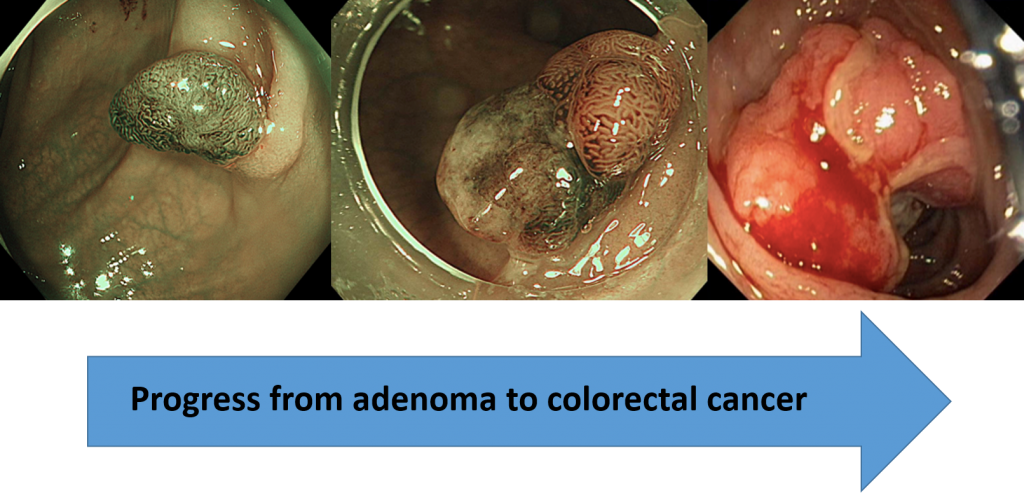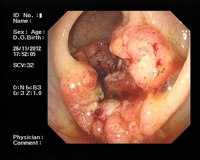What Is Rectal and Colon Cancer?
Rectal and colon cancer (also known as colorectal cancer) originates along the lining of the colon and rectum, initially as a polyp, specifically an adenoma. If not removed, adenomas can develop into colorectal cancers. By screening, adenomas can be discovered and removed, preventing progression into colorectal cancers. Thus, screening can effectively reduce the risk of developing and dying from colorectal cancer

According to the most recent data from the Hong Kong Cancer Registry, colorectal cancer is now the most common cancer in the city, with more than 5,635 new cases diagnosed in 2017. Colorectal cancer is also the second leading cause of cancer related deaths in Hong Kong, with over 2000 deaths in 2015.
What are the risk factors for colorectal cancer?
Risk factors include
- First degree relatives with colon cancer (relatives are at 2-3x higher risk of developing colorectal cancer than the general population, and are recommended to undergo colonoscopyscreening)
- Diabetes
- Fatty liver
- Obesity
- Smoking history
- Frequent alcohol intake
- Frequent red/processed meat consumption
- Minimal physical activity
- Minimal fiber intake
What are the symptoms of rectal and colon cancer?
Colorectal cancer can be asymptomatic but symptoms can include:
- Colorectal cancer can be asymptomatic
- Blood in stool
- Mucus in stool
- Changes in bowel habits (diarrhea or constipation)
- Abdominal pain
- Unexplained weight loss
- Unexplained anemia
What to do if you suspect you might have rectal or colon cancer
If you have any of the above symptoms, you are recommended to seek medical consultation. A colonoscopy may be recommended. Faecal immunochemical testing is not suitable for symptomatic patients.
Even if you do not have the above symptoms, international guidelines still recommend starting screening at 50 years old, using either:
1) fecal immunochemical testing or
2) colonoscopy
Earlier screening may be recommended for high-risk groups, such as people with a first degree relative with colorectal cancer.
Colorectal cancer can be prevented! You can make a difference.
What are the differences between faecal occult blood testing and a colonoscopy?
| COLONOSCOPY
|
FECAL IMMUNOCHEMICAL TEST | |
| Diagnostic Ability | Visual inspection of the colorectum
|
Detects occult blood. If positive (blood detected), will need colonoscopy |
| Therapeutic Capability | Can remove polyps and take biopsies | None |
| Accuracy | The most accurate for polyps and cancers | Accurate for cancer |
| Procedural Details | After sedation, a thin flexible tube-like device with camera and light functions is used to examine the colorectum, taking usually 30 minutes in duration | Stool collection at home, and return of kit to the centre |
| Risks | Approximately 1/1000 chance of serious adverse events | None |




